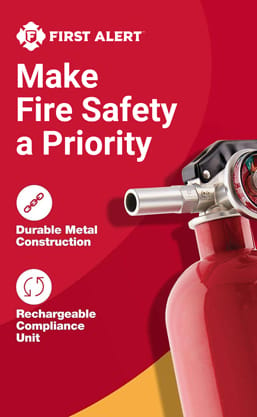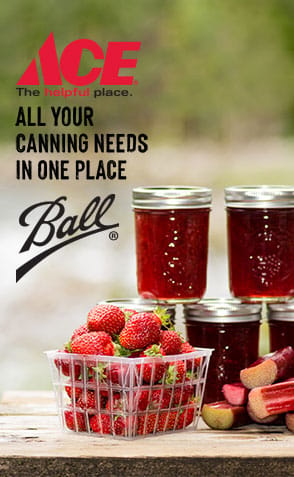Whether you're fitting a new dishwasher or refurbishing an entire plumbing installation, the quality of the pipes you use will have a huge impact on the project's success. The PVC pipe department here at Ace includes tough, durable piping for use in kitchens, bathrooms, drains and anywhere else around the home, along with a full range of fittings and connectors to complete your plumbing tasks with professional results.
Benefits of Using PVC Pipes
PVC plastic is a tough but lightweight material, and this makes it ideal for use in hard-working plumbing installations. PVC pipes and fittings have several important features that can make them a better choice than other types of pipes, with the main benefits including:
- Corrosion-resistant: PVC piping isn't affected by corrosion from water or common household chemicals, offering the long-lasting rust resistance of galvanized iron pipe at a much lower cost.
- Hassle-free installation: Unlike heavy iron pipes that can require specialist tools for installation, plastic water pipes are lightweight, easy to cut and simple to handle.
- Low heat conductivity: Unlike metal pipes, plastic pipes don't conduct much heat. This low heat transfer makes them better insulators when transporting water, saving on energy bills.
- Moisture resistant: The outside surface of a PVC tube also stays dry even without insulation, which is incredibly helpful for moisture-prone applications like boilers and air conditioning condensation drains.
Despite these valuable benefits, it is important to consider the potential downsides of using plastic tubing for home or commercial plumbing. PVC plastic can be sensitive to direct sunlight, meaning the pipes can become brittle when in the sun for extended periods. Also, while a PVC pipe can easily handle typical domestic temperatures, extra-hot conditions can cause warping or buckling so a PVC tube should be used with care in commercial installations.
Choose Your PVC Pipe Sizes and Thickness
At Ace we stock PVC pipe sizes from ½ inch up to 4 inches and more, giving the versatility to install a high-volume PVC drain pipe or compact under-sink fittings with equal ease. They are ready cut into lengths of a few inches up to 20 feet or even longer. Our PVC tubing is also available in standard wall thicknesses, with schedule 40 pipes ideal for residential use, or thicker schedule 80 PVC piping for use in high-pressure or industrial settings.
Choosing Between PEX and PVC Pipes
If you need the toughness of PVC but with greater flexibility to use in large underground installations, cross-linked polyethylene pipes, also known as PEX pipes, are one of the most popular plastic pipe types used today. These pipes can deliver both cold and hot water, and they're known for their versatility, ease of fitting, low price points and their ability to maintain consistent water pressure.
However, their low tolerance to UV light means they can't be used for an above-ground outdoor installation. What's more, unlike a PVC pipe or tube, PEX is not eco-friendly, meaning you are unable to recycle it at the end of its life.
Shop PVC Drain Pipe and Tubing at Ace Hardware
The importance of a successful home plumbing system cannot be overstated when it comes to comfort, safety and convenience, and we offer a variety of PVC piping and other plastic tubing from brands like Charlotte Pipe to help you take care of all your plumbing needs. Whether you need a simple replacement plumbing part or are planning a complete bathroom renovation, you can find all the PVC pipe sizes and thicknesses you need at your local Ace Hardware store.

























